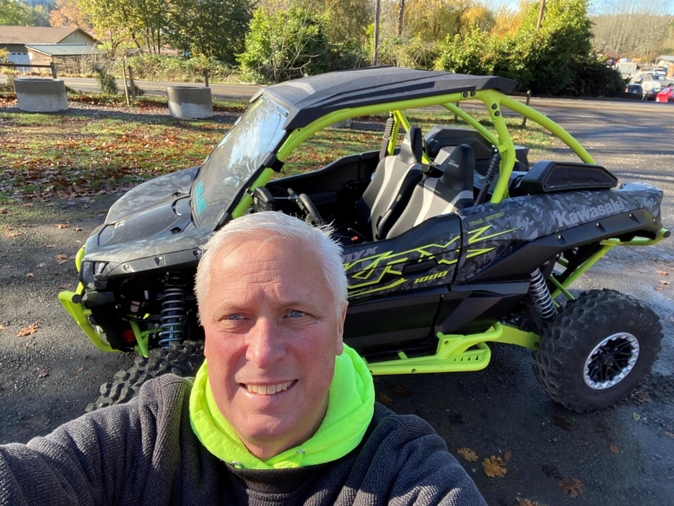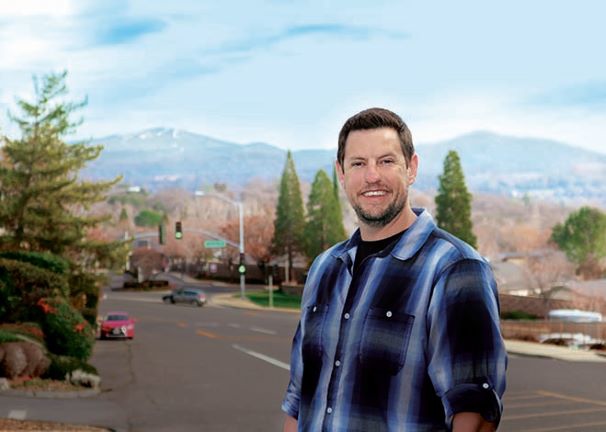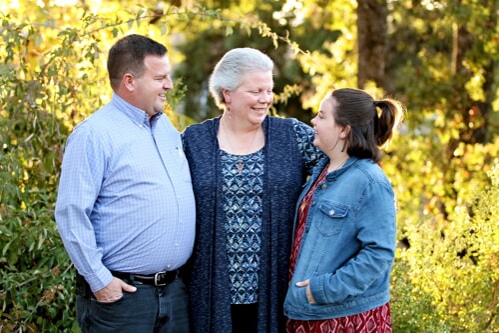Finding His Own Way
Dec 1, 2021

How one heart patient’s research led him to a better solution
When Jeff Rawlins’ heartbeat became so irregular he had to visit the emergency room in 2020, he already knew its cause. He had been diagnosed with a bad mitral valve in 1994. This meant the flaps that should prevent blood from flowing backward in his heart were no longer working well. Over the years, Jeff’s mitral valve worsened until it eventually landed him in the ER.
Jeff underwent electrical cardioversion, a procedure that uses high energy to try and shock the heart back into a normal rhythm. Jeff’s procedure somewhat improved his rhythm, but his doctor told him the mitral valve was “shot.”
Facing either a mitral valve repair or replacement, Jeff met with the surgeon to whom he was referred. That provider planned to perform an open-chest mitral valve surgery on Jeff. This would require cutting through his breast bone, known as a sternotomy.
“I knew recovery would be bad and impact my lifestyle,” Jeff explains. “I fish. I ride in the dunes. I didn’t want to give that up.” The sternotomy would also require no driving for up to six months, and that would impact Jeff’s job in construction.
His concerns led him to do his own research about minimally invasive surgery, which uses small incisions to insert robotic-assisted instruments into the chest cavity without breaking the sternum. Jeff was even willing to fly across the country to find a surgeon who could perform his valve surgery using minimally invasive techniques.
Fortunately for Jeff, a search for top heart surgeons revealed that one of the nation’s best, Dr. Thomas Molloy, was located just miles away at Northwest Regional Heart & Vascular in Portland, Oregon. A quick call to Dr. Molloy’s office, and Jeff had an appointment to consult with him.
Jeff says he was immediately comfortable with Dr. Molloy — “the way he explained everything, how friendly he was,” Jeff remembers. They even had a shared love of flying their own planes.
After reviewing Jeff’s health history, medical records and test results, Dr. Molloy said he believed there was a 95% chance he could repair Jeff’s mitral valve instead of replacing it — and use minimally invasive valve surgery to do it.
Avoiding the future issues that come with valve replacement, like taking medication for life and/or facing another replacement in the future, meant the world to Jeff. “It was such a relief,” Jeff says.
After Dr. Molloy explained everything, Jeff and his wife just sat in their car. “Is this real?” they wondered, as their relief and excitement continued to build.
The Northwest Regional Heart & Vascular staff helped Jeff get set up for his surgery. “I can’t say enough about them,” he says. He appreciated how kind everyone was and how well Dr. Molloy explained everything to his wife.
As predicted, Dr. Molloy was able to repair Jeff’s mitral valve using robotic minimally invasive surgery. Though the anesthesia made him nauseated, Jeff reports his pain was never above a 3. He was back home in a matter of days.
Jeff says his outcome is so good, he would’ve even paid out of pocket to see Dr. Molloy and avoid the open-chest surgery. The same neighborhood walk that forced him to rest every little bit now doesn’t even affect Jeff. He’s back to working in his yard and helping with the raking — things that had become too difficult before his valve repair.
To other people facing similar surgeries, Jeff has clear advice. “Do your own research,” he says. “Don’t just take one answer as the only answer. This is a huge surgery, so look into the minimally invasive option.”
And with that, Jeff is heading back to dune buggying and looking forward to flying his own plane once again.
If you or someone you love needs heart care, you can reach Dr. Molloy and his team by calling 503-261-4430.


